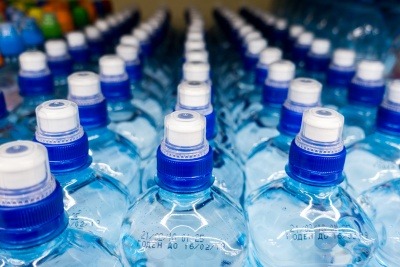European Parliament votes to ban single-use plastics
The European Parliament has voted to ban problematic single-use plastic products across the EU in a bid to tackle plastic pollution.
The new Single-Use Plastic Directive, proposed by the European Commission (EC) last year and voted for by MEPs yesterday (27 March), will prevent the sale and use of 10 of the most polluting single-use plastic products on the EU market, including cotton bud sticks, cutlery, straws, stirrers and polystyrene containers, where alternatives exist. EU member states will have until 2021 to transpose the Directive into national legislation following the final adoption by the European Council of Ministers.
The new directive is a key part of the EU’s Plastics Strategy, which aims to make all plastic packaging on the EU market recyclable or reusable by 2030. The Plastics Strategy is in turn part of the Circular Economy Package (CEP), which aims to improve resource efficiency and keep raw materials in circulation for longer. As part of the CEP, EU member states are required to achieve a municipal recycling rate of 60 per cent by 2030.
Other measures included in the Directive include: extended producer responsibility (EPR) schemes for abandoned fishing equipment; reducing the consumption of food containers and beverage cups made from plastic; a 90 per cent separate collection target for plastic bottles by 2029; and a target to incorporate 25 per cent recycled plastic in PET bottles from 2025 and 30 per cent in all plastic bottles from 2030.
Oxo-degradable plastics will also be banned following the implementation of the Directive – the controversial material has been accused of contributing to microplastic pollution, with claims that it only fragments into smaller pieces of plastic rather than degrade.
‘New and ambitious standards’
The rapid development of the legislation reflects the current momentum behind global efforts to curb plastic usage, spurred on by images of plastic pollution in the natural world as seen on Sir David Attenborough’s Blue Planet II at the end of 2017. Besides the Single-Use Plastics Directive, the EU is preparing to introduce a microplastics ban by 2020, which could prevent 400,000 tonnes of microplastics from entering the environment over the next 20 years.
Commenting on the announcement, EC First Vice-President Frans Timmermans, who is responsible for sustainable development, said: "Today we have taken an important step to reduce littering and plastic pollution in our oceans and seas. We got this, we can do this. Europe is setting new and ambitious standards, paving the way for the rest of the world."
The EC has been keen to stress the headline environmental and economic benefits of the package of measures, stating that the Directive will help to avoid 3.4 million tonnes of CO2 equivalent, avoid €22 billion of environmental damages by 2030 and save consumers a projected €6.5 billion.
Vice-President Jyrki Katainen, responsible for jobs, growth, investment and competitiveness, added: "Once implemented, the new rules will not only prevent plastic pollution, but also make the European Union the world leader in a more sustainable plastic policy. The European Parliament has played an essential role in laying the foundation for this transformation and in giving a chance to the industry to innovate, thus driving forward our circular economy."
The UK has been active in its attempts to tackle plastic pollution since Michael Gove became Environment Secretary in June 2017, introducing a ban on wash-off microbeads in cosmetic products in January 2018, pledging £61.4 million to tackle marine plastic pollution throughout the Commonwealth and placing plastic pollution at the heart of its 25 Year Environment Plan, with its headline commitment to eliminate ‘avoidable’ plastic waste by 2042.
Meanwhile, the government’s recent Resources and Waste Strategy included plans to implement a ‘full cost recovery’ EPR model for plastic packaging – which would see producers finance the collection and sorting of their products – introduce a tax on the manufacture and import of plastic packaging containing less than 30 per cent recycled plastic and establish a deposit return scheme (DRS) for single-use beverage containers.







